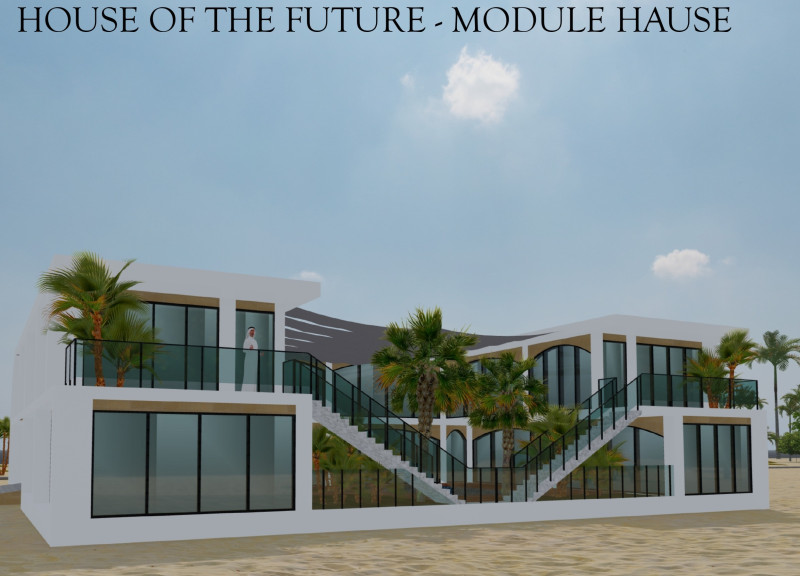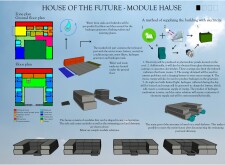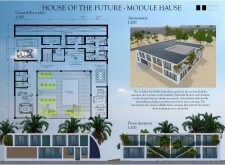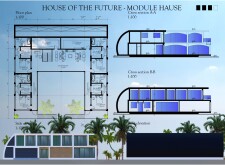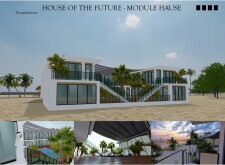5 key facts about this project
## Project Overview
Located in a forward-thinking community, the House of the Future - Module Hause embodies a commitment to sustainable living and modular design. This residential concept integrates advanced technology and design practices aimed at eco-conscious homeowners. By focusing on energy efficiency, adaptability, and smart systems, it seeks to enhance the quality of life while minimizing its environmental impact.
## Spatial Configuration
The layout of the house is strategically organized to create distinct private and communal areas. Key features include:
- **Private and Communal Spaces**: Designated zones for personal use, such as bedrooms and bathrooms, balance the need for individual privacy with communal areas like living and dining rooms, fostering social interaction among residents.
- **Technical Room**: A dedicated technical area houses essential systems, including a server room, battery units, and water purification devices, effectively separating utility functions from living spaces.
- **Open Spaces**: Generous open areas facilitate natural light and ventilation, contributing to the overall comfort and well-being of residents.
## Material and Environmental Considerations
The architectural design employs a range of materials that support its sustainability objectives.
- **Photovoltaic Panels**: Installed on the roof, these panels provide renewable energy, significantly reducing the home's carbon footprint.
- **Quantum Dot Coatings**: Applied to glass surfaces, these coatings enhance energy efficiency by minimizing heat absorption.
- **Steel Skeleton Framework**: This structure offers durability and mobility, allowing for potential repositioning of the modules.
- **Water Recycling Mechanism**: The design incorporates a system that filters and reuses wastewater, promoting efficient water management.
- **Sustainable Technologies**: Features such as air-conditioned glass and foldable fabric awnings are integrated to optimize thermal comfort without excessive energy use.
The overall design prioritizes environmental harmony through passive cooling and strategic orientation to maximize natural light. This approach not only meets contemporary sustainable standards but also sets a precedent for future residential developments focused on environmental stewardship.


